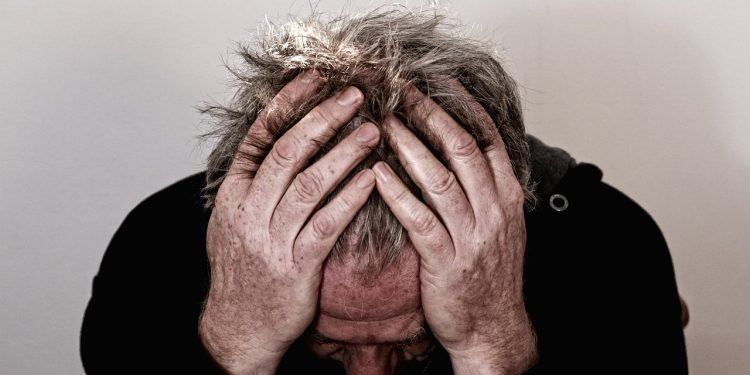How Do I Know if I Have Depression? The Symptoms & Treatment

In recent years the conversation around mental health – particularly depression – has opened up dramatically. Studies show that 1 in 6 adults in the UK suffer from depression. It’s likely you know multiple people living with the condition. If you’ve been feeling low, you’re not alone, and may be wondering ‘Do I have depression?’ Depression is a serious mood disorder that can have a big impact on how a person feels and thinks. It can have a detrimental effect on all aspects of life. Let’s take a look in more detail.
What causes depression?
Before we jump ahead and start diagnosing whether you have depression, let’s first take a moment to understand what causes it.
Depression has many possible causes and it is unlikely that any one factor is responsible for depression. However, it can be triggered by an event like death, birth, chronic illness, trauma, stress, alcoholism and drug abuse.
According to research, if you have a family history of poor mental health, you are at a higher risk of developing depression.
Do I have depression?: Common symptoms
Now that you know the causes of depression, it’s time to look at symptoms of depression.
If you exhibit any (or a combination of) the following symptoms, it is quite likely that you may have depression. The most common symptoms of depression are:
- Prolonged sadness: It’s completely normal to feel sad for a short while after something negative or sad has happened. However, if this persists for more than two weeks (with or without an obvious reason), chances are high that you may be suffering from depression.
- Loss of interest in things you once enjoyed: Does your favourite activity no longer interest you and bring you joy? Losing interest in your hobbies, personal life and activities you love are all strongly linked to depression. This can severely impact your quality of life and even your relationships.
- eeling worthless: Depression often makes people think more negatively about the world and themselves. Low self-esteem is known to be not only a symptom of depression but also a risk factor for the condition.
- Disturbed sleep: Sleeping late at night and waking up tired isn’t great, but we’ve all been there at one point or another. Whilst it’s normal for this to happen occasionally, it’s time to seek help if this is your new normal. If you are struggling to sleep well in addition to any of the other symptoms we mention here, it’s possible this is related to depression. Studies show that sleep disorders are some of the core symptoms of depression.
- Difficulty concentrating: Hey! Are you still with us? If you struggle to concentrate on tasks, then you may need to get checked for depression. Don’t let past trauma or future worries ruin your present.
Can depression be cured?
This is the part you have been waiting for, right? The good news is that yes, depression can be treated. Thankfully, the medical sciences are advanced enough to offer a range of effective treatments for depression. Some of the most common treatments for depression include:
- Cognitive behavioural therapy (CBT)
Cognitive behavioural therapy (CBT) is a type of talking therapy which can help you to identify and change harmful thinking patterns and behaviours. Studies have shown it to be an effective treatment for depression because it challenges negative behaviours and helps develop new coping strategies.
- Psychotherapy
Psychotherapy involves talking to a trained mental health professional to diagnose the causes of depression. A trained psychotherapist will use counselling techniques to identify and work through issues that are contributing to the condition. It can also be really helpful for sufferers to gain a deeper knowledge of themselves and their experiences.
- Antidepressant medications
Antidepressants are used improve cognitive function by rebalancing brain chemicals that influence mood and emotions. The most common type of antidepressants are SSRIs which increase serotonin levels in the brain. Some people find antidepressants effective in reducing symptoms including melancholy, poor energy, and loss of interest in activities. Others find the side effects do not outweigh the benefits. - rTMS treatment
Repetitive transcranial magnetic stimulation (rTMS) is a non-invasive therapy that stimulates the area of the brain that regulates mood using magnetic fields. rTMS treatment for depression can be highly effective for those who haven’t found conventional methods helpful. It can enhance mood and alleviate the symptoms of depression without the need for drugs.
Getting help for depression
Depression can take many forms, including (but not limited to) major depression, perinatal depression, seasonal affective disorder, and psychosis. Thankfully, due to the availability of medical treatments, all types of depression can be treated effectively. If you or someone you know may be showing symptoms of depression, it is recommended to consult with a mental health professional as early as possible to help improve your quality of life.









